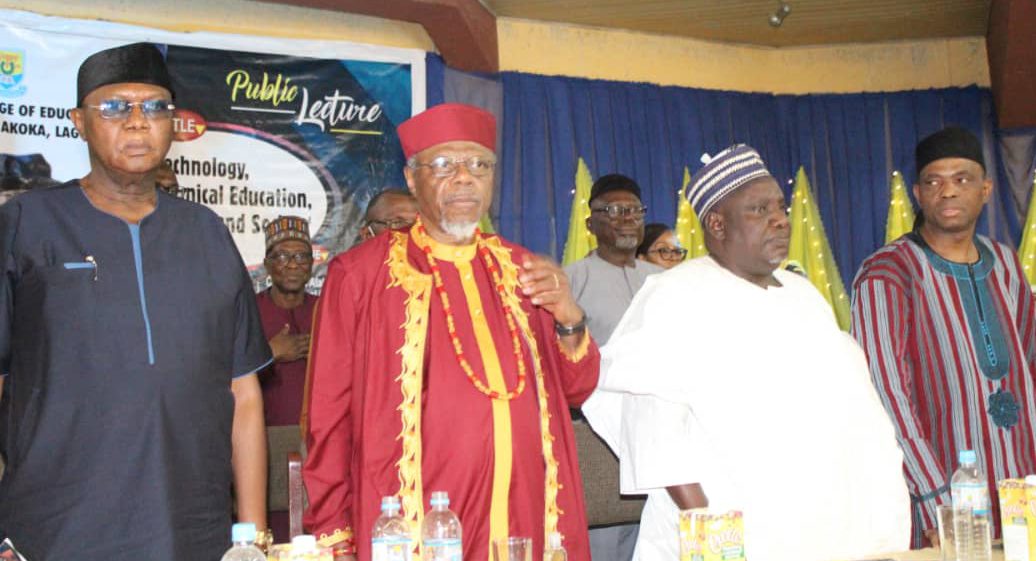Yemisi Shyllon, chairman of the occasion; Toyin Falola, guest lecturer; Adamu Muazu, chairman, governing council, Federal College of Education (Technical) Akoka, (FCET), and Wahab Azeez, FCET provost, during the college's public lecture titled 'Technology, Technical Education, Culture and Society'.
Toyin Falola, a professor of history at the University of Texas, has called for measures to review technical education in Nigeria.
He said this on Wednesday while delivering a public lecture titled ‘Technology, Technical Education, Culture and Society’, at the Federal College of Education in Akoka, Lagos state.
According to him, there is a need to understand how technology can help to promote the African culture without losing the latter’s essence.
“There is a need to examine technical education in the ancient Nigerian culture and society — methods in which technical procedures and technological knowledge are passed across to the “students” or those receiving the education,” he said.
Advertisement
“There is a need for the adoption of culture and cultural approaches in technical education. This will allow easy and quick assimilation. For instance, if technical courses or processes are developed and taught in a way that African languages have ready representations, explanations, and words for them, the level of understanding would be increased. The adoption of culture in new technologies is important in order not to leave people behind.
“Technical education must also target the older generation of people that are very convinced about their cultural approaches. This is because technological products are not useful only to the youth or the new generation but to all.
“The tendency of a technology in the Western world and the unconscious efforts of adopting it in Africa could be something Africans should be worried about. Enthronement of technology over culture and popular way of life might be too radical and may break the sociological threads of African society.
Advertisement
“Technology can consume valuable cultural values that are supposed to still be beneficial to society. Social decadence and increase in social vices could be the results of the adoption of new developments and technology without sieving out the parts that are not favourable when considering the cultural history of the people.
“The enthronement of technological advancement over African culture might be considered a subtle means of neo-colonialism. Where access to these developments is either not directly available in Africa or requires certain commitments, it creates a level of control.”
He also spoke on how Nigeria’s development can be driven through culture, technical education and modern technology.
“The place of society in the coexistence of modern technology and culture. How have the two been responsible for Nigerian development and what has Nigeria benefited from them? There is a need to emphasise local entrepreneurship,” he said.
Advertisement
“I want to suggest, however, an emphasis by higher education leadership on three months practical technical education/apprenticeship for students with roadside artisans (welders, mechanics, saw millers etc.). The aim is to get students to learn the basics in the skills & knowledge of the practical side of the business.
“How can the co-existence of the two concepts help in resolving Nigeria’s current predicaments that are hindering development? Our youths must lead us to success.
“African governments should prioritise development. Without that, we are wasting our time with other recommendations. No nation or people will make significant societal progress without consciously planning for it, and providing the enabling environment, policies, incentives, strategies and pathways for development.
“Individuals may prosper in the current inimical state of affairs, but as a nation and as a continent, a developmental mindset is needed to move us to the promised land.”
Advertisement
Add a comment





